One winter evening, as I prepared for a crucial performance, the familiar hum of my guitar tuner went silent. Panic set in as I realized that the *tiny power source* had reached its end. This nerve-wracking experience thrust me into the depths of understanding everything about guitar tuner batteries — the intricacies that can make or break your musical moment. From *button cells* to *rechargeable options*, understanding your tuner’s power sources is vital.
My journey in lutherie mirrors this emphasis on precision — much like discerning the right battery for your tuner. The foundation of great sound truly lies in these seemingly minor details. *Knowing when to replace your battery* can prevent the chaos I faced, ensuring smooth performances every time. But where should you buy these batteries, and what type suits your tuner best?
In this guide, I delve deeply into the various types and lifespans of guitar tuner batteries to keep your performances pitch-perfect. Join me as we explore how a small component holds such grand significance in our musical endeavors.
What Types of Guitar Tuners Use Batteries?

Having designed and built various stringed instruments, I’ve come to appreciate that understanding your guitar tuner is as crucial as knowing the instrument it’s meant to serve. Whether tuning a vintage acoustic or a modern electric guitar, the right tuner can make all the difference. There are dozens of guitar tuners available, but how do you know which ones use batteries? That’s the crux of the matter, especially for those who rely on dependable tuning during live performances or recording sessions.
Many **guitar tuner types** indeed depend on batteries to function properly. The most common are **clip-on tuners**, which are marvelously convenient but require power to display pitch information on digital screens. Then there are **pedal tuners**, favored by electric guitarists for their robust accuracy and ability to be part of a pedalboard setup; these often use batteries as a backup power source. Handheld tuners, although somewhat old-school, also rely on batteries, providing a standalone option that you can easily carry around in your gig bag.
The **battery type for guitar tuner** varies, too. Clip-on tuners typically need coin cell batteries, like the CR2032, renowned for their compactness and reasonable lifespan. Pedal tuners often use 9-volt batteries, offering more juice but at a slightly bulkier size. Understanding the battery needs of each tuner type is not just about functionality, but also about ensuring uninterrupted musical harmony. This knowledge empowers the musician to choose the right tuner with the appropriate battery type, making game-changing decisions grounded in informed practicality.
Why Battery Type Matters for Your Guitar Tuner
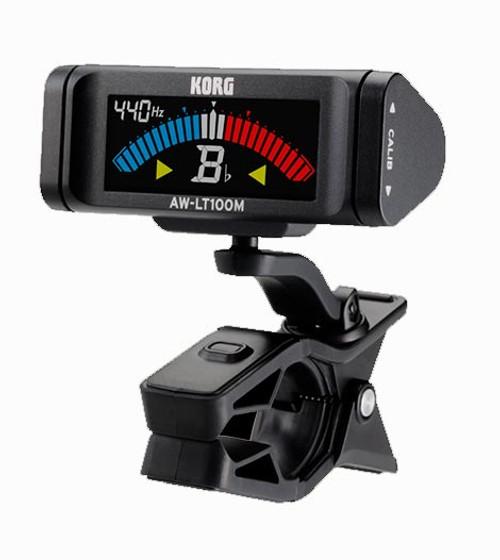
As someone deeply rooted in instrument engineering, I’ve seen firsthand the profound impact a simple battery choice can have on your guitar tuner’s performance. Choosing the wrong battery can lead to inaccurate tunings—do you truly know your options? This decision goes beyond just keeping your tuner powered; it directly influences the precision and reliability of your tuning sessions. A battery that doesn’t match your tuner’s specifications can result in fluctuating readings and inconsistent tuning.
From my extensive experience, I can confidently say that understanding the nuances of a battery type for guitar tuner is crucial. The CR2032 battery is often a go-to choice for many modern tuners due to its compact size and reliable output. However, it isn’t always the best suited for every model out there. Identifying the best batteries for tuners requires attention to details such as voltage and current capacity, which affect how your tuner functions over time.
I’ve spent years perfecting the craft of ensuring tuners operate at their prime. This isn’t just about maintaining functionality but also ensuring that your device stands the test of time. Proper battery selection contributes significantly to prolonging your tuner’s lifespan, thus allowing your instrument to sing true. As we delve deeper into this guide, my hope is to equip you with the insights needed to make informed battery choices that align perfectly with your tuner’s requirements.
When to Replace Your Guitar Tuner Battery
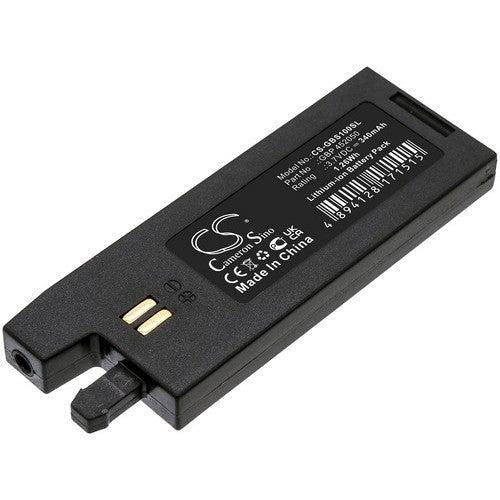
As a guitarist who’s seen it all, allowing a weak battery to skew my tuning is an experience I’d prefer to avoid. I’ve learned that keeping an eye on the battery life of your guitar tuner is crucial for a smooth musical experience. Yet, with the plethora of tuners out there, from clip-ons to pedals, it’s no wonder that battery life can vary dramatically between different tuners—how can you tell when it’s time for a change? This question is the crux of effective battery maintenance and performance.
In my journey, I’ve found that tuners can sometimes give subtle hints of battery depletion. A lag in the display response, dimming backlights, or even erratic tuning readings are telltale signs. These guitar tuner battery issues can dampen any rehearsal or performance if left unchecked. As someone who cherishes precision, I’ve come to respect the tuning process enough to never overlook these signs. It’s always wise to carry spare batteries in your guitar case, just like an extra set of strings.
While some might overlook these nuances, seasoned players like myself know that addressing battery health paves the way for a flawless session. Tracking usage time and having replacements ready ensures I never compromise on musical integrity. Keep your tuner in peak condition, and it won’t let you down, guiding you with unwavering accuracy.
Where to Buy Guitar Tuner Batteries
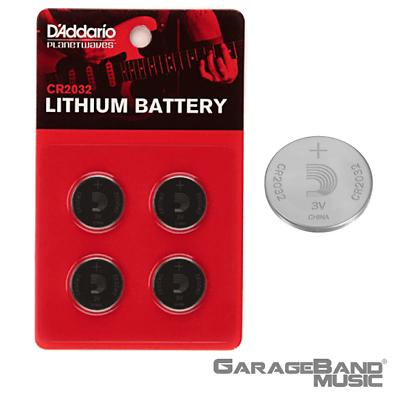
Finding the right battery shouldn’t be a chore—where should you look first? Over the years, as an active member of the lutherie community, I’ve scoured countless places to buy guitar tuner batteries, always seeking the perfect balance of quality and reliability. When it comes to purchasing, your local music store is a treasure trove, often offering a range of options for guitar tuners, including specialized batteries and expert advice.
However, if convenience and variety are your top priorities, online marketplaces are invaluable. Websites like Amazon and Sweetwater have extensive catalogs that allow for easy comparison of battery types and prices. Here, you can find everything from single-use alkaline to advanced rechargeable tuners, ensuring you have access to the latest innovations in battery technology.
Don’t overlook the benefit of loyalty programs and discounts offered by larger online retailers or even directly from battery manufacturers. Signing up for newsletters can occasionally net you significant savings or exclusive deals. Personally, I’ve consistently found that balancing online purchases with expert guidance from dedicated shops results in acquiring not just batteries, but the right batteries for your specific needs.
Remember, the source you choose not only impacts the performance and lifespan of your tuner but also reflects your commitment to maintaining your musical instruments with care and precision.
How to Change Your Guitar Tuner Battery
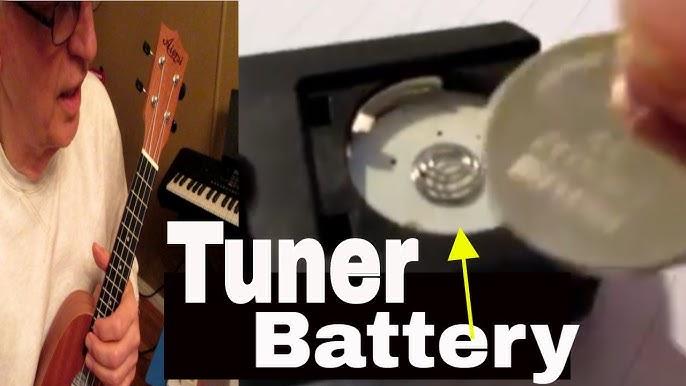
Changing your guitar tuner battery can be simple—are you doing it correctly? As someone who’s spent a great deal of time crafting and maintaining guitars, I’ve learned that even the simplest tasks, like replacing a tuner battery, can trip you up if not done with care. To ensure a smooth battery replacement, start by identifying the *type* of tuner you have. Is it a clip-on, pedal, or built-in model? This will guide you in accessing the battery compartment correctly.
Once you’ve determined your tuner type, check your device’s *battery compatibility*. Using the wrong battery type could lead to poor performance or, worse, damage your tuner. For clip-on tuners, gently slide open the battery door, carefully noting how it was positioned within. Pedal tuners might require unscrewing parts of the casing, so have a small screwdriver handy. Built-in tuners usually have a designated compartment within the guitar body—often an overlooked step for newer guitarists.
When replacing the battery, *ensure proper orientation* by following the + and – signs indicated in the compartment. Incorrect placement can lead to short circuits. Also, *handle with care*, as I’ve seen many a tuner rendered useless by a misplaced battery door or forced entry. Finally, test the tuner immediately after replacement to confirm it’s working efficiently. This extra step is crucial and should never be skipped.
By paying attention to details and avoiding common mistakes, you ensure your tuner is always ready to perform at its best. Embrace this minor task with the same respect and attention you’d give to other aspects of instrument maintenance, and your tuner will serve you well on your musical journey.
FAQs
What types of batteries do guitar tuners use?
How long do guitar tuner batteries typically last?
Where can I buy replacement batteries for my guitar tuner?
Conclusion
As we wrap up, what will you take away about maintaining your guitar tuner’s performance? The key takeaway is the significant impact of a quality guitar tuner battery on your musical journey. Throughout this guide, I’ve highlighted the variety of battery types, from alkaline to lithium, and how each differs in terms of cost and environmental impact. Remember, the battery life of your guitar tuner can directly influence your music sessions, making it crucial to choose wisely.
We’ve explored the importance of recognizing when to replace your battery, ensuring that your equipment remains reliable. The availability of these batteries, whether at local music shops or online marketplaces, makes staying prepared easier than ever.
Just as precision in instrument making leads to an enriched musical experience, so too does meticulous attention to battery care sustain that joy. By adopting these practices, you’ll enjoy uninterrupted harmony with your instrument. As someone who values detail, I encourage you to prioritize your tuner’s power source, ensuring it never lets you down at pivotal moments.
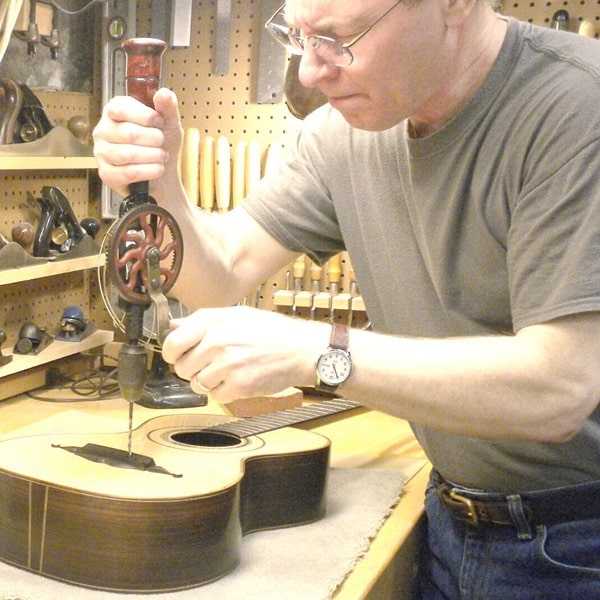
R.M. Mottola, an engineer-turned-luthier, revolutionizes stringed instrument design with his deep focus on acoustics and ergonomics since 1994. As editor of the Savart Journal and a key contributor to American Lutherie, Mottola merges science with artistry in lutherie. He enriches the field with his extensive knowledge, shared through his Liutaio Mottola website, making him a beacon in the world of modern instrument craftsmanship.
